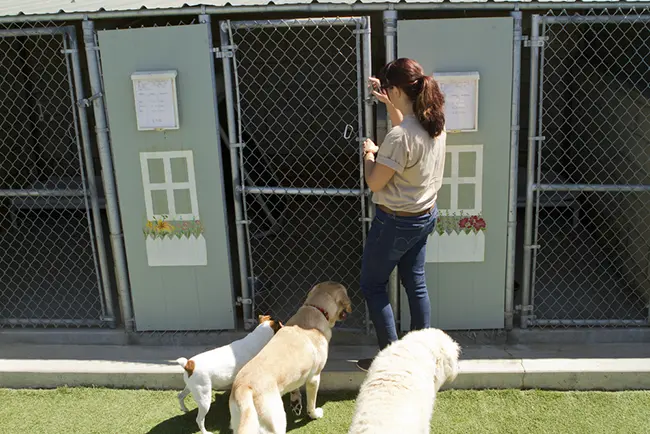
When pet owners plan to travel, boarding their dogs becomes a common choice. However, if a female dog is in heat, it raises concerns about whether boarding facilities accept dogs in this condition. In this article, we will delve into the topic of boarding a dog in heat and provide essential information to help you make an informed decision.
Understanding a Dog’s Heat Cycle
Before exploring the possibility of boarding a dog in heat, it is crucial to understand the heat cycle. Female dogs generally experience heat or estrus twice a year, lasting approximately 2-3 weeks. During this time, hormonal changes occur, and the dog becomes receptive to mating.
Boarding Facilities and Policies
When it comes to boarding facilities, policies regarding dogs in heat can vary. It is essential to research and contact potential boarding facilities to inquire about their policies on accommodating dogs in heat. Some boarding facilities may have specific requirements, restrictions, or additional fees for dogs in heat due to the potential risks and challenges involved.
Behavioral Considerations
Female dogs in heat can exhibit unique behaviors and temperament changes. They may become more agitated, restless, or display signs of increased territoriality. These behavioral changes can be a factor in determining whether a boarding facility can accommodate a dog in heat. Some facilities may have separate areas or special protocols to manage dogs in heat, ensuring the safety and comfort of all the dogs in their care.
Health and Hygiene Factors
During a dog’s heat cycle, there are various health and hygiene factors to consider. Female dogs experience vaginal bleeding, which can last for several days or weeks. This necessitates frequent monitoring and cleaning to maintain hygiene. Boarding facilities must consider the extra care required for dogs in heat, including providing sanitary measures and ensuring a clean and safe environment for all animals.
Risk of Pregnancy
One of the primary concerns when boarding a female dog in heat is the risk of unplanned mating and pregnancy. If a female dog in heat comes into contact with a male dog, even for a brief moment, there is a possibility of pregnancy. Boarding facilities must have measures in place to prevent any interaction between dogs, especially during the vulnerable period of estrus.
Specialized Boarding Options
In some cases, specialized boarding options may be available for dogs in heat. These options can include boarding facilities that exclusively cater to dogs in heat or those with separate areas designated for them. These facilities often have experienced staff members who are well-versed in managing dogs during their heat cycles and provide additional care to ensure the comfort and safety of all the dogs in their care.
Alternatives to Boarding
If boarding a dog in heat poses challenges or concerns, there are alternative options to consider. Hiring a professional pet sitter who can provide in-home care may be a suitable solution. Additionally, consulting with your veterinarian for guidance on managing a dog in heat during your absence can be beneficial.
Conclusion
Boarding a dog in heat requires careful consideration due to the unique challenges and potential risks involved. While some boarding facilities may accommodate dogs in heat, it is essential to research and communicate with potential facilities to ensure the best care for your furry friend. Considering alternative options, such as specialized boarding facilities or hiring a professional pet sitter, can provide peace of mind during your absence. Remember to prioritize your dog’s health, safety, and well-being when making decisions about boarding during the heat cycle.



